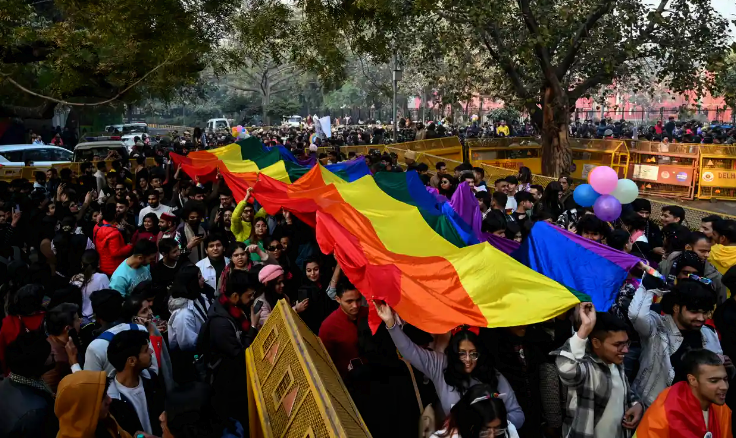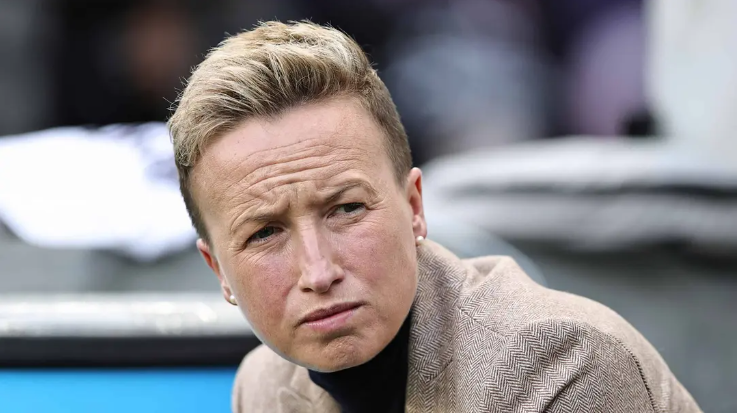India: Top Court Hears Pleas To Legalize LGBTQ+ Marriages
On Tuesday, India's Supreme Court began hearing final arguments on a number of petitions from LGBTQ+ couples and activists seeking to legalize same-sex marriage in the country.

Facts
- On Tuesday, India's Supreme Court began hearing final arguments on a number of petitions from LGBTQ+ couples and activists seeking to legalize same-sex marriage in the country.1
- A five-judge constitutional bench headed by Chief Justice of India DY Chandrachud is live streaming the debate in "public interest" as it calls same-sex union a "seminal" issue of great importance.2
- However, PM Narendra Modi's administration has maintained that marriage is an "exclusively heterogeneous institution" and argued that the creation of a new socio-legal relationship can only be achieved through the legislature, not the judiciary.3
- The Modi government also said that requests to legalize same-sex marriage are "urban elitist views" as it sought the dismissal of the petitions.4
- However, senior LGTBQ+ advocate Mukul Rohatgi has called for the Special Marriage Act of 1954 — which allows the union of inter-caste and inter-faith couples — to be made gender-neutral. He has also argued for a revision of the term "marriage" as between "spouses" rather than a "man and woman."5
- The petitioners have reportedly approached the Supreme Court under several articles of the Indian Constitution, citing that all citizens have a right to move to the top court if their fundamental rights — including the right to equality — are violated.6
Sources: 1Guardian, 2BBC News, 3New York Times, 4Reuters, 5Business Today, and 6The Indian Express.
Narratives
- Progressive narrative, as provided by The Indian Express. It's not a matter of religion, tradition, or social morality; it's about the fundamental rights of citizens, about freedom from stigma and harassment, and about LGBTQ+ couples having the same rights as heterosexual couples. The case has implications not just for LGBTQ+ couples but also for equality for all citizens under the Constitution at a time when India's democratic values are under attack by right-winger activists attempting to shift the country towards a theocracy.
- Conservative narrative, as provided by The Times of India. While the LGBTQ+ community shouldn't be discriminated against, it's crucial to note that same-sex marriages aren't compatible with the Indian familial unit of husband, wife, and children. Proponents of marriage equality must understand that any attempt to disturb the exclusively heterogeneous institution would cause complete havoc in India's deeply religious society. The ripple effects of legalizing same-sex marriages are difficult to anticipate.
Predictions
What will be the share of people living in countries where same-sex marriage is legal in the following years?
Metaculus is a community dedicated to generating accurate predictions about future real-world events by aggregating the collective wisdom, insight, and intelligence of its participants.








